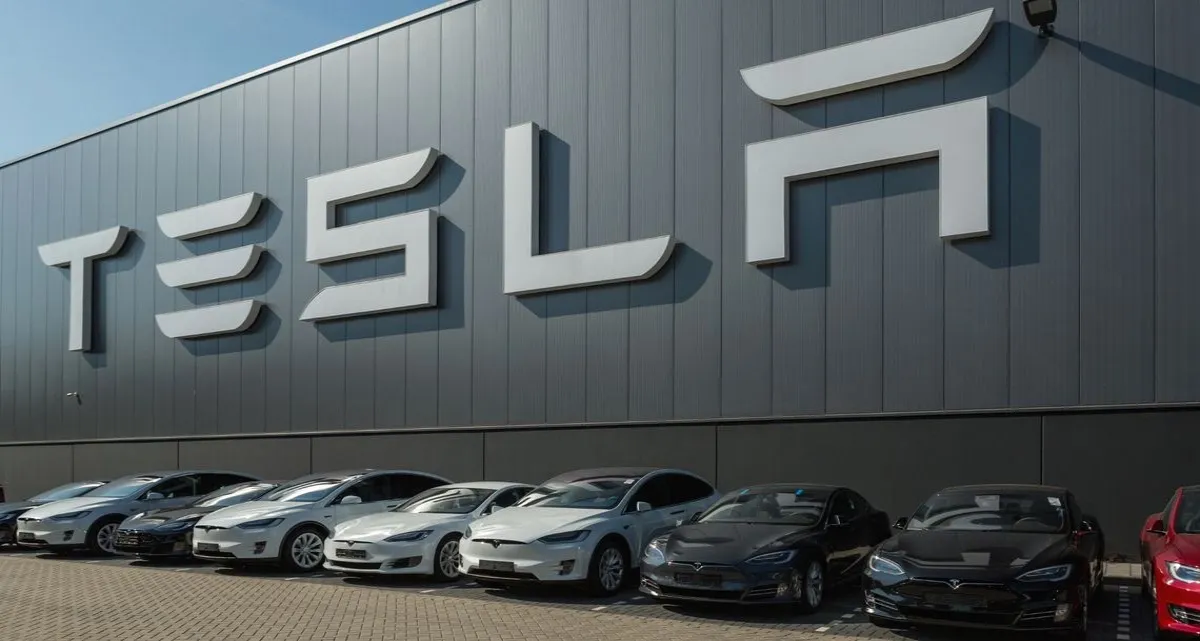

In response to Tesla Inc.'s price cuts, automakers have started to reimburse leasing companies for the declining value of used electric vehicles, as the industry is forced to sell more EVs or risk facing steep fines.
According to Chief Executive Officer Tim Albertsen, Ayvens, the largest multi-brand leasing company, has already received checks in recent weeks to make up for declining prices. To prevent further depletion of the $1.2 trillion used car market, leasing companies are pressuring EV manufacturers to make concessions, such as pledges to buy back vehicles.
Used EV prices fell abruptly last year as a result of Tesla's and other manufacturers' cuts to sticker prices in response to the declining market for new battery-powered vehicles. Leasing companies, like Europe-focused Societe Generale SA's Ayvens and BNP Paribas SA's Arval, are feeling the effects of the changes. These companies act as middlemen in the corporate car market, which makes up about 60% of sales in the area.
Leasing agreements typically have payments intended to cover depreciation and are based on the vehicle's estimated used value at the time the contract expires. Leasing companies lose money on cars if the value declines more than anticipated, as it has recently for electric vehicles.
Also Read: Tesla Recalls Over 2 Million Cars for Warning Light Issues: A Simplified Overview
Numerous automakers have leasing divisions, such as Mercedes-Benz Mobility, Stellantis and Credit Agricole's Leasys, and Volkswagen AG Financial Services. With the 2022 merger of ALD Automotive and LeasePlan, Ayvens was created, and its fleet currently numbers over 500,000 electric vehicles. Last week, Albertsen revealed that the company is negotiating agreements to re-lease well-maintained cars to automakers to cover the risk of depreciation.
Corporate automobiles are particularly well-liked in Europe, where they are driven by substantial tax breaks and subsidies. Last year, nearly 13 million BMW, Volkswagen, and Stellantis vehicles were delivered in this market. Approximately 16% of cars sold at the time were fully electric.
Automakers face penalties if they don't meet the increasingly stringent fleet emission regulations. Volkswagen is still a ways off, but the European Union will lower its allowable carbon dioxide emissions next year, according to a market research firm called Jato. In the UK, sales of zero-emission cars must account for 22% of all vehicles this year, and 28% the following year.
However, it appears less likely that Europe will meet its goal of phase-out sales of new combustion-engine cars by 2035 if the used EV market does not see stable pricing.
However, significant corporate clients are beginning to back off. This month, SAP SE declared that it will no longer provide Teslas to staff members due to the difficulty that fluctuating prices are posing to risk management and planning. The action increased pressure following Hertz Global Holding Inc.'s decision to remove 20,000 electric vehicles from its fleet in January. The largest rental company in Europe, Sixt SE, also declared in December that it would stop renting Teslas.
According to Ursula Weigl, a partner at McKinsey consultancy, all EV manufacturers are now providing buyback guarantees to leasing companies in order to keep selling new battery cars. Carmakers are still responsible for finding used car buyers at a fair price, or risk writedowns, even though this helps shift risk into the future.
The US-based residual value insurer RVI Group reported a spike in demand for its specialized coverage in the past few months as clients, primarily financial institutions, seek to hedge against declining electric vehicle values.
Also Read: Which are Mercedes biggest cars?